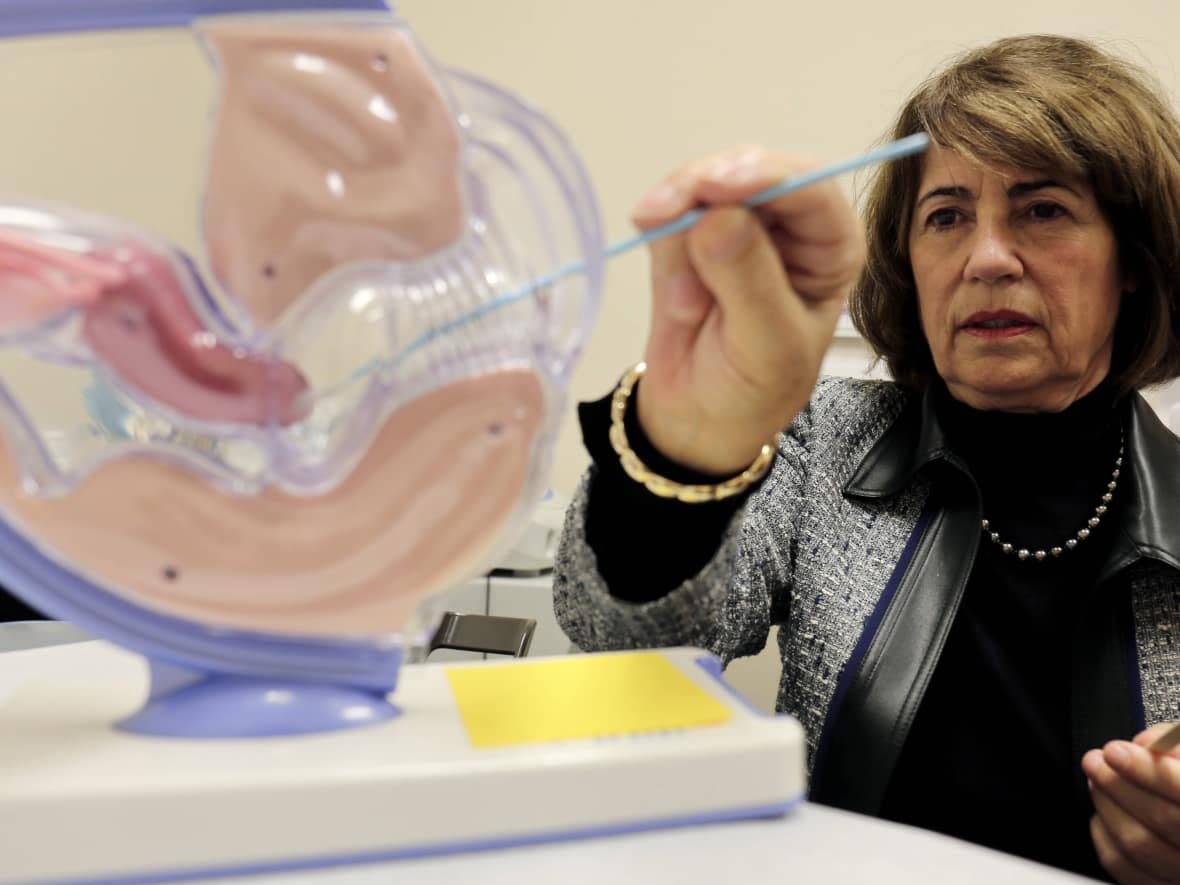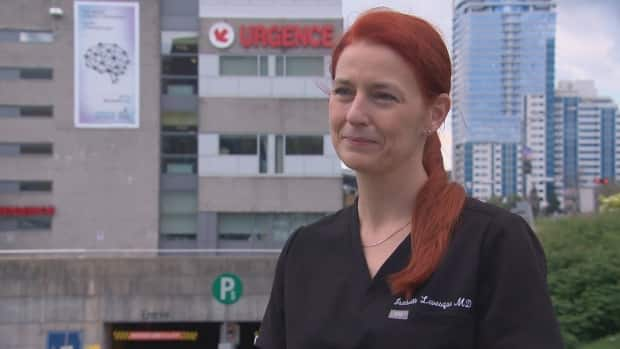Quebec gynecologists upset they weren't told of plan to replace pap tests with HPV tests

Quebec gynecologists are speaking out over not being consulted about the province's plan to replace pap tests with HPV tests as its main tool to screen for cervical cancer.
Health Minister Christian Dubé made the announcement earlier this month, saying the new health plan aims to improve patient experience, including "moving away from the typical intrusive test."
While gynecologist Dr. Céline Bouchard welcomed the news of this new measure, she was surprised by the announcement.
"We, the doctors in the field, were not informed at all," she said.
One of her colleagues, Dr. Isabelle Lévesque, was also caught off guard by the government's announcement.
"Patients came to my office the day after the announcement to ask if they were going to have the new test. I told them no. There are a lot of things that need to be put in place and the labs aren't ready to have a flow like that," she says.
Bouchard feels that she and her colleagues should be the first to know about such a change in their practice. But she doesn't expect to see quick changes in hospitals yet.
"The time it takes to roll this out in a disorganized system like we have now will be very long," she said, adding the rollout could take up to a year, or even longer.
Pilot project first
The HPV test, which detects high-risk types of human papilloma virus, will be offered to women between the ages of 25 and 65, every five years.
The HPV test is more sensitive than the pap test, which is currently used to detect HPV and pre-cancerous lesions. Without detection, these lesions can lead to cervical cancer. HPV is the cause of almost all cases of cervical cancer.
According to Bouchard, nearly 25,000 women in the Quebec region have not been screened in the last year alone because of the pandemic.
She said the delay in screening during the pandemic and the slow implementation of the new tests announced could have serious consequences for hundreds of women in Quebec.

"I inform my patients that unfortunately, they still have to take the old pap test, which is less sensitive. It detects 50 per cent fewer lesions," she said.
For its part, the Quebec government says it has been clear since the announcement that the introduction of the new HPV tests would take time.
The Health Ministry says that all the parameters of this new program, from screening to diagnosis, will have to be defined over the next few months, with a timetable for implementation at each stage.
In addition, before deploying HPV testing throughout Quebec, the government would like to conduct a pilot project in a few health institutions.
The ministry is currently working on the new clinical pathway associated with the new tests. This will require a complete reorganization of the province's laboratories, it says, which are already already under heavy strain by COVID-19 samples.
Protection for the price of $700
In addition to rapid screening, vaccination is the only means of prevention to avoid HPV-related complications, according to gynecologists. The only vaccine available is Gardasil, but one dose costs about $220 and three are needed for maximum protection.
"It's very expensive and women who have less money will often refuse the vaccine because they can't afford it," said Bouchard, who would like to see the drug covered by the Régie de l'assurance maladie du Québec (RAMQ).
The impact of HPV is mostly felt by women aged 30 and over, since the HPV vaccination program was implemented in 2008 in Quebec.
Bouchard recommends vaccination for men and women who consider themselves at risk of contracting HPV because of, for example, a divorce or frequent changes of sexual partners.
"At that point, the vaccine will work very well, at about 98 per cent," she said.
Breaking taboos
Three out of four sexually active Canadians will come in contact with HPV in their lifetime, but gynecologists say people with the infection often face stigma because it is mainly transmitted sexually.
In Canada, it is estimated that one in 168 women will develop cervical cancer in her lifetime.
"It's very taboo, but at least the patients we see are a little more informed because their children in elementary school are getting vaccinated," said Lévesque.
Bouchard notices the psychological impact of a diagnosis every day, especially in young women.
"They feel dirty, they feel really set apart from others, when they are not set apart from others," she said.
"They are in the proportion of cases which appear and which must be treated."

 Yahoo Movies
Yahoo Movies 
